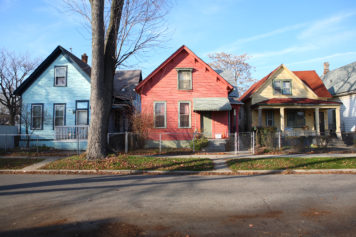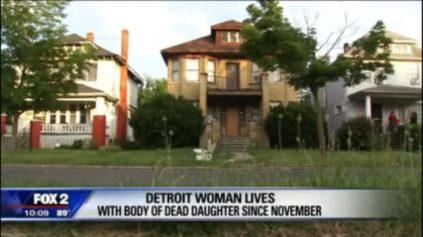
For example, Rhonda Alford, an entrepreneur and licensed pilot, created the Detroit Pride, a football franchise for women ages 18 and up. This full tackle team is a member of the IWFL football league, competing in a mid-west division with teams such as the Pittsburgh Passion and the Toledo Reign. The team recently completed its first season and won its league’s affiliate bowl.
David Anderson, 28, who earned a bachelor’s degree in electrical engineering from the University of Michigan, is the co-founder of a co-working space in downtown Detroit called Bamboo Detroit.
“Our tagline is: ‘Grow fast. Grow strong.’ That’s what we want to instill in our businesses,” Anderson told Crain’s Detroit Business. “We want all of our businesses to grow fast and strong like bamboo.”
Since its launch in August 2013, the business has grown from 15 to 86 members. Realizing the extent of the talent that was located in Bamboo, Anderson and others launched Bamboo Imagine, a marketing firm that serves Bamboo members and others.
“We kind of realized that we have the makeup of what a creative agency has,” Anderson said. “So why not create an agency that is for our members and by our members?”
Another example of Black millennials contributing to Detroit’s renaissance is Chase Cantrell, a corporate lawyer who grew up in the city. As a student at the University of Michigan Law School, Cantrell was the lead plaintiff in an ACLU and NAACP Legal Defense Fund case challenging the constitutionality of Proposition 2 in the U.S. Supreme Court. Proposition 2, also known as the Michigan Civil Rights Initiative, was a ballot initiative that prohibited affirmative action based on race or gender.
“After I graduated law school in 2008, I began to participate in recruitment efforts at my prior employer, a large law firm with a strong commitment to recruiting diverse attorney candidates. I saw firsthand the effect of Proposal 2 on the Michigan legal market,” Cantrell said on the ACLU blog. “Diversity numbers had dropped at top-tier Michigan law schools, despite such schools’ efforts to foster diverse student bodies and stabilize matriculation rates, and recruitment of minority talent became more challenging.”
Cantrell, who practices law in Detroit, notes that while the city is over 80 percent Black, lawyers of color are far less than that.
“One of the most important things one learns in civics class is that voters have the right to make law through ballot initiatives,” Cantrell said. “But, the electorate, just like the legislature, is not allowed to make unconstitutional laws, and it is the role of our courts to protect against this.”
Cornetta Lane, a social entrepreneur and storyteller who works at a credit union, created Core City Stories, a biking/walking tour whose mission is to “preserve the historical identities of Detroit neighborhoods, in jeopardy of cultural rebranding, through the art of storytelling.” The tour allows participants to travel through the city and surrounding neighborhoods, including stops at the homes of local residents who use their front porch tell their stories.
Britney Stoney, 26, is a part of Detroit’s arts scene, and an emerging singer, songwriter and guitarist who makes folk-influenced music. In 2014, Stoney won a Kresge Arts Fellowship, which advances the careers of Detroit artists and elevates the profile of the area’s artistic community. According to the Kresge Foundation, Stoney wants to empower her listeners, and serve as a role model for emerging artists and an ambassador for Detroit’s arts community.
Meanwhile, Amina Daniels, a fitness guru and businesswoman, has partnered with Jackie Palmer to open a cycling studio and wellness studio in Detroit called, Live Cycle Delight. The two women just received $50,000 in funding and business support from Comerica Bank and other sponsors, including Opportunity Detroit. According to the Detroit Hub, Live Cycle Delight plans to become the first contemporary cycle studio in downtown Detroit.


